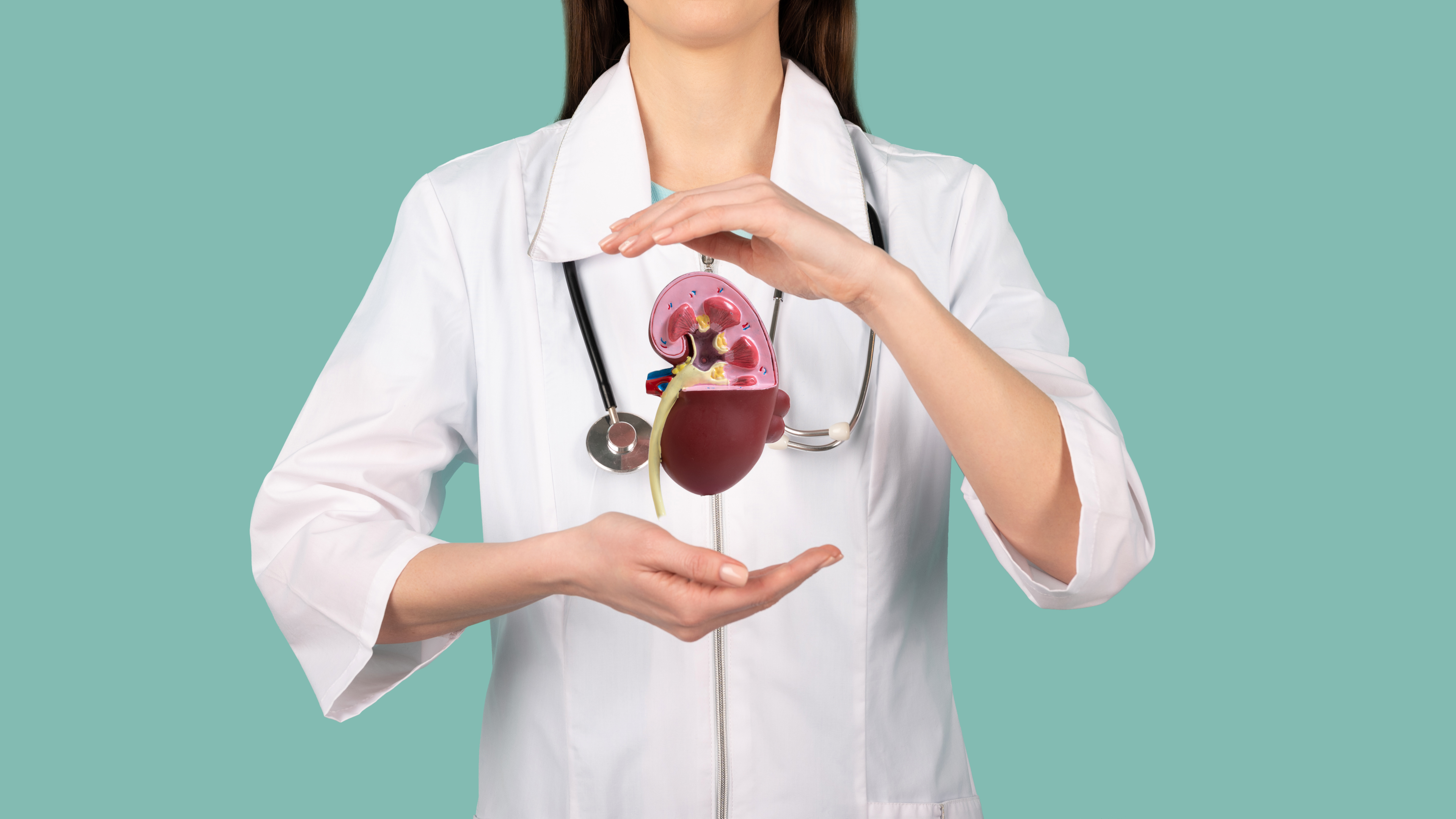What are the Masturbation Effects on Kidneys?

Related products

Masturbation is a normal and healthy sexual behaviour commonly practised by people of all ages. However, there is a common misconception that excessive masturbation can adversely affect the kidneys and decrease essential nutrients. In this article, we will examine the scientific evidence and explore the potential effects of masturbation on the kidneys from a health science perspective.
What is Masturbation?
It is a common and normal behaviour often practised in private. It is typically a part of a healthy sexual life. Masturbation can be done with or without sexual aids, such as vibrators or lubricants. Are there cons to masturbation? For women, extreme masturbation might cause rashes in the vaginal areas. However, the belief that masturbation affects your kidneys is considered as a myth.
Masturbation Effects on Kidney
No scientific evidence suggests that masturbation directly affects the kidneys or may cause a kidney infection. Extra fluid from the kidneys turns into urine, which the entire body then gets rid of. Masturbation does not have any direct impact on these functions.
Can Masturbation Cause Kidney Stones or Infections?
Scientists haven't found any proof that masturbation can cause kidney stones or kidney infections. Kidney stones are formed when there is an excess of certain minerals in the urine, such as calcium or oxalate. These minerals can crystallize and form hard, stone-like masses in the kidneys or urinary tract. Risk factors for kidney stones include a family history of kidney stones, a diet high in salt or animal protein, and certain medical conditions, such as gout or inflammatory bowel disease.
In the same way, bacteria that get into the urinary tract and make their way to the kidneys cause kidney infections. Risk factors for kidney infections include urinary tract infections, sexual activity, and certain medical conditions, such as a weakened immune system or a urinary tract abnormality. Masturbation is not directly related to the pain caused by kidney stones or infections. It is also believed that masturbation can increase sperm production. Studies that involved masturbation and kidney stones are very limited.
Can masturbation lead to poor kidney function or damage?
No scientific proof exists that masturbation hurts the kidneys or makes them work poorly. Masturbation does not have any direct impact on these functions.
It is possible that certain underlying medical conditions or unhealthy habits, such as a poor diet or lack of exercise, may lead to poor kidney function or damage. However, these factors are not related to masturbation.
Can masturbation cause urinary tract infections or other urinal problems?
No scientific evidence supports the claim that masturbation causes urinary tract infections or other urinary problems. Urinary tract infections (UTIs) are caused by bacteria that enter the urinary tract and multiply, leading to an infection. UTIs can affect the urethra, bladder, or kidneys. Risk factors for UTIs include sexual activity, specific birth control methods, and certain medical conditions, such as a weakened immune system or a urinary tract abnormality. Masturbation does not increase the risk of urinary tract infection.
Some people may experience temporary discomfort or pain, such as back pain or stomach pain, such as after masturbating, mainly if they engage in excessive or rough masturbation or if an underlying medical condition affects their genital or urinary tract. But these effects aren't caused by masturbation itself; they can usually be fixed with proper medical care.
Does masturbation affect other medical problems?
Prostate cancer
Some evidence suggests that frequent ejaculation, including through masturbation, may be associated with a decrease in prostate cancer risk. The prostate is a small gland in the male reproductive system that produces some fluid that makes up human semen. Some studies have found that men who ejaculate more frequently, either through sexual intercourse or frequent masturbation, may have a lower risk of prostate cancer. However, the evidence is inconclusive. More research is needed to determine the link between ejaculation frequency and your risk of getting prostate cancer.
If you suspect having kidney problems, try this procedure to determine your kidney functions.
Erectile dysfunction and stamina
No scientific evidence supports the claim that masturbation causes erectile dysfunction or will decrease stamina. Erectile dysfunction means being unable to sustain an erection that is adequate for sexual activity. Various factors, including age, certain medical conditions, and the use of certain medications, can cause it. Masturbation does not cause erectile dysfunction.
At the same time, masturbation does not decrease stamina or physical performance. The capacity to maintain physical or mental exertion over an extended period is referred to as stamina. You can improve it through regular physical activity and a healthy lifestyle.
Mental health issues or physical pain
No scientific evidence supports the claim that masturbation causes mental health issues or muscle pain. Some research has shown that masturbation may be suitable for your mental health, like reducing stress and anxiety and making you feel better about your body and your sexual satisfaction.
Read more: Does masturbation help you sleep?
Can masturbation affect sexual health and pleasure?
Masturbation can be a healthy and enjoyable part of a person's sexual life. It can have positive effects on sexual health and pleasure. Masturbation can help people learn about their bodies and what feels good to them, which can improve their sexual experiences with a partner. It can also help people reduce stress and improve their mood and may have other mental and physical health benefits. It is also an excellent way to avoid unwanted pregnancies for women and sexually transmitted infections for both sexes.
It is also important to follow good hygiene practices, such as washing your hands and genitals before and after masturbation, to reduce the risk of infection.
Read more: Can masturbation cause hair loss?
Can masturbation cause negative feelings or other physical symptoms?
Some people may experience negative feelings or physical symptoms after masturbating, particularly if they feel guilty or ashamed about masturbating or have underlying mental health issues. However, these effects are not caused by masturbation. They may be related to social or cultural beliefs about masturbation or other factors, such as a person's relationship with their sexuality.
It is important to remember that masturbation is normal and healthy sexual behaviour and should not be considered shameful or wrong. Suppose you are experiencing negative feelings or physical symptoms after masturbating. In that case, it may be helpful to talk to a healthcare provider or a mental health professional for support and guidance.
Masturbation is a natural and healthy way for individuals to explore and fulfil their sexual pleasure. It is a normal part of human sexuality. It can be an enjoyable and satisfying part of a healthy sexual life.
The kidneys are a vital organ that plays a crucial role in maintaining overall health and well-being. Masturbation does not have any direct impact on the functions of the kidneys.
Read more: Does masturbation decrease testosterone?
Summary
Masturbation is a normal and healthy sexual behaviour commonly practised by people of all ages. No scientific evidence suggests any adverse effects on the kidneys or kidney health. Masturbation does not cause kidney failure or kidney stones, cause infection, prostate cancer or testicular pain, or erectile dysfunction. Masturbation does not lead to poor kidney function or kidney damage. It is not associated with any adverse physical or mental health effects.
And if you're asking if masturbation decreases stamina, the answer is a definite no.
If you suspect having kidney problems, order the Welzo Kidney Health test to learn more about your kidney health.



















 Rated Excellent by 26,523+ Reviews
Rated Excellent by 26,523+ Reviews